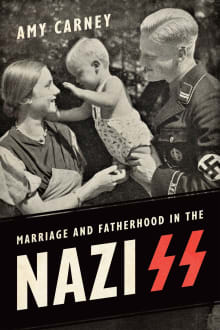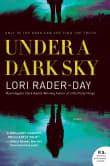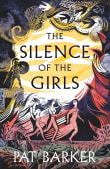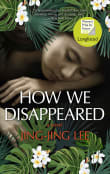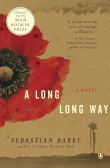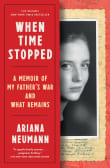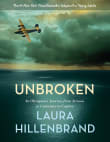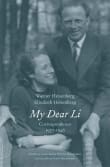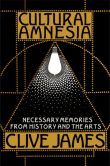A Woman in Berlin

Book description
A New York Times Book Review Editors' Choice
For eight weeks in 1945, as Berlin fell to the Russian army, a young woman kept a daily record of life in her apartment building and among its residents. "With bald honesty and brutal lyricism" (Elle), the anonymous author depicts her fellow…
Why read it?
7 authors picked A Woman in Berlin as one of their favorite books. Why do they recommend it?

When I was secretly working as an escort, living and working ‘underground’, and came upon this book, I was immediately drawn in because here, too, despite and thankfully many different circumstances, was a woman witnessing and taking notes not only to keep herself sane but also to bear witness to the real events as they affected women in this terrible and extraordinary moment in history.
Instead of events and general washes of the main players, as is so often what we get when studying a period of history, here was a true, authentic voice of the actual effects and aftermath…
From Sephe's list on authentic voices for a glimpse into secret worlds.

Berlin is under siege. Those who have not left cannot escape. Bombs rain down, water is scarce, and food is more so.
A woman strives to survive the Russian soldiers out to avenge their losses by offering everything in exchange for their protection. You feel the cold, the fear in the basements, the terror of bombs, and the triumph of the human spirit to put the worst of the worst aside and continue to live. I loved the raw triumph of surviving.
From Elizabeth's list on WWII Resistance and Survival in europe.

Another first-person account of war, this time seen through the other end of the telescope: when the victorious Red Army occupied Berlin in 1945.
The order of the day was sadistic revenge meted out on the civilian population. As usual, women bore the worst of it. Regardless of age, each was raped and brutalized. After the war, none spoke of this for fear of being stigmatized. The author was an exception: she wrote matter-of-factly about what she experienced and witnessed, not trying to make sense of it.
She recorded the horrid reality in order to hold on to her sanity.…
From Abby's list on when history gets personal.
If you love A Woman in Berlin...

Just like Api’s diary, A Woman in Berlin begins on April 20, 1945, and she, too, writes daily to maintain her sanity in a world of chaos and death. The author, who wanted to remain anonymous, gives a clear-eyed perspective of a woman alone, trapped in Berlin, fighting starvation and the terrors of Soviet invasion. For women above all this meant rape. They tried to hide in the ruins, make themselves look old, dress up as men. Nevertheless, Soviet soldiers raped over 100,000 women. I read in Api’s diary that Berlin doctors soon began to perform then illegal abortions for…
From Gabrielle's list on WWII stories of ordinary people caught in war.

This is the diary of a German journalist, living in Berlin in April-May 1945, describing life in the city as the Nazi regime collapsed and the Red Army advanced on a binge of rape and looting. It’s not easy reading - a portrait not only of how women, faced with horrific abuse, manipulate their oppressors in order to survive, but the exigencies of daily life as civil society breaks down. Its publication history is almost as interesting as the book itself – first published anonymously in the 1950s, its German audience refused to endorse it. Re-published in 2003, after the…
From Mary's list on forgotten (or untold) histories of war.

When the Russians seized bombed-out Berlin near the end of WWII, it was a landscape of rubble where the surviving Germans lacked the most basic necessities: food, water, and heat. Women fared much worse than men because of a terror campaign of rape directed at them by the conquering Russian soldiers. This memoir, describing eight weeks living under siege, was written by a courageous journalist who watched her neighbors with a keen Berliner's eye, and who did whatever was necessary in order to survive while still trying to keep her dignity intact. Heroism in the face of adversity takes many…
From Gershen's list on conquering adversity.
If you love Anonymous...

This is a harrowing account of a woman’s experience as the Red Army raged through Berlin in the final days of the war. Sadly, the women of Berlin were another group that paid the price for Hitler’s warped vision. The author, who for most of the book’s life remained anonymous, was later revealed as a journalist, Marta Hillers. Hillers conveys the fear and the constant disorder, while carving out a grim existence that causes her to almost give up emotionally, and during what she calls the “sexual spoils”. She describes how she and the other women were “spoken for” by…
From Gemma's list on WW2 occupation, resistance, and the aftermath.
If you love A Woman in Berlin...
Want books like A Woman in Berlin?
Our community of 12,000+ authors has personally recommended 100 books like A Woman in Berlin.








